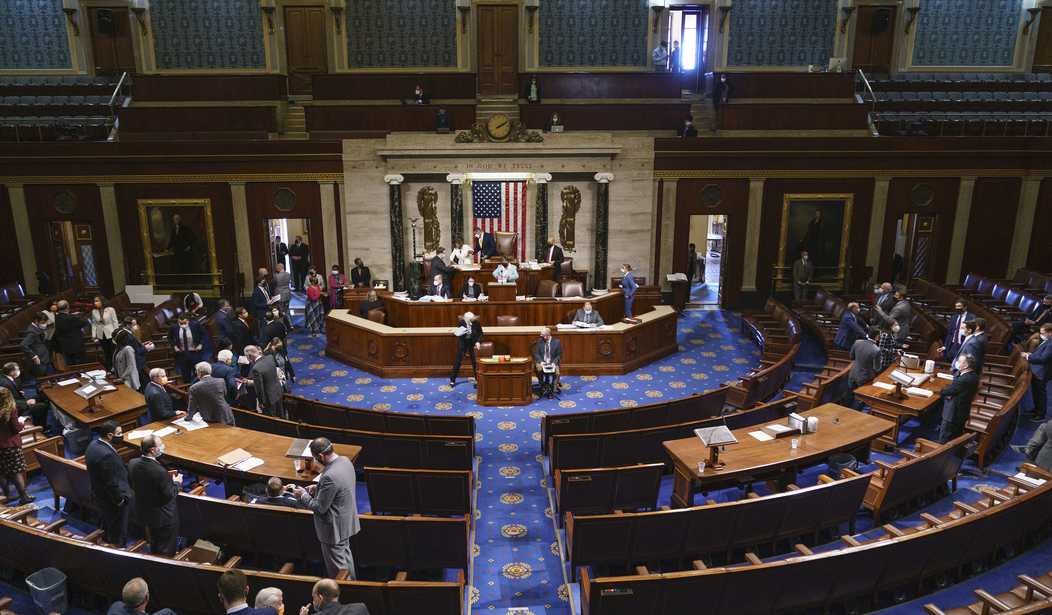The end of Roe opens the door for House Republicans to attempt to limit abortion access for women nationwide. In 2013, 2015, and 2017, the Republican-controlled House passed the Pain-Capable Unborn Child Protection Act, which restricted access to abortion after the 20th week.
Now, the author of that bill, Rep. Chris Smith of New Jersey, says Republicans are looking to lower that threshold to 15 weeks.
Related: Justice Thomas Calls for End to Legislating from the Bench, Drives the Left Even Crazier
“We’re working on something along those lines,” Smith said. “I have the Pain-Capable at 20 weeks. We’re going to lower it to 15. There are all kinds of ideas there,” Smith told the Washington Examiner.
His effort has attracted some high-profile supporters in the conference. McCarthy told CNN he backs legislation to codify a 15-week ban on abortion, saying: “I’d support that.”
Separately, when asked by CNN at a news conference on Friday, McCarthy did not commit to putting any specific pieces of anti-abortion legislation on the House floor if they recapture the majority.
After the news conference, Republican Rep. Ann Wagner of Missouri told CNN that she has reassurance that one of the very first bills a GOP-led House would vote on is her “Born-Alive Abortion Survivors Protection Act,” which requires medical care to be given to an infant that survives an attempted abortion, even though medical care would already be required under such a scenario.
Of course, the Senate will be a different story. At this point, Republicans have a good shot at winning some kind of majority. The most likely scenario now is a GOP-controlled Senate in 2023 of 52 or 53 seats. With 60 seats needed to head off a Democratic filibuster, the midterms would have to break massively in favor of the GOP for Republicans to get to that number.
Another tack Republicans might take would be to ban late-term abortions. That kind of ban may attract some Democratic votes.
Top House Republicans typically have been wary to push for stricter, nationwide abortion bans and are instead expected to focus their messaging on calling for bans on so-called late term abortions, which are rare. But Republicans feel like it’s a more popular message and that polling is on their side when it comes to late term abortions.
A less likely option is for Republicans to introduce a fetal heartbeat bill. Several states have passed laws that prevent abortions once “cardiac activity” is detected in a fetus, and 100 Republicans have co-sponsored such a bill in the House. But in each case, federal courts have struck them down or delayed their implementation.
In Virginia, Gov. Glenn Youngkin immediately asked members of the state legislature to pass a 15-week abortion ban. But he was cautious in advancing the bill.
“Virginians do want fewer abortions as opposed to more abortions,” Youngkin said Friday morning during a meeting with reporters, editors and editorial writers at The Washington Post moments after the court’s decision was announced. “I am not someone who is going to jump in and try to push us apart … There is a place we can come together.”
But the ruling and Youngkin’s policy announcement — his most explicit policy statement to date on an issue he tried to sidestep during last year’s campaign — only seemed to aggravate the partisan divide.
Democrats were in no mood to play nice with Republicans. “This is the beginning of this Governor’s attack on freedom,” House Minority Leader Don L. Scott Jr., a Democrat from Portsmouth, said in a text message.
The repeal of Roe settled nothing. If anything, it gave new life and energy to both sides, and abortion will continue to simmer as an election issue.










Join the conversation as a VIP Member